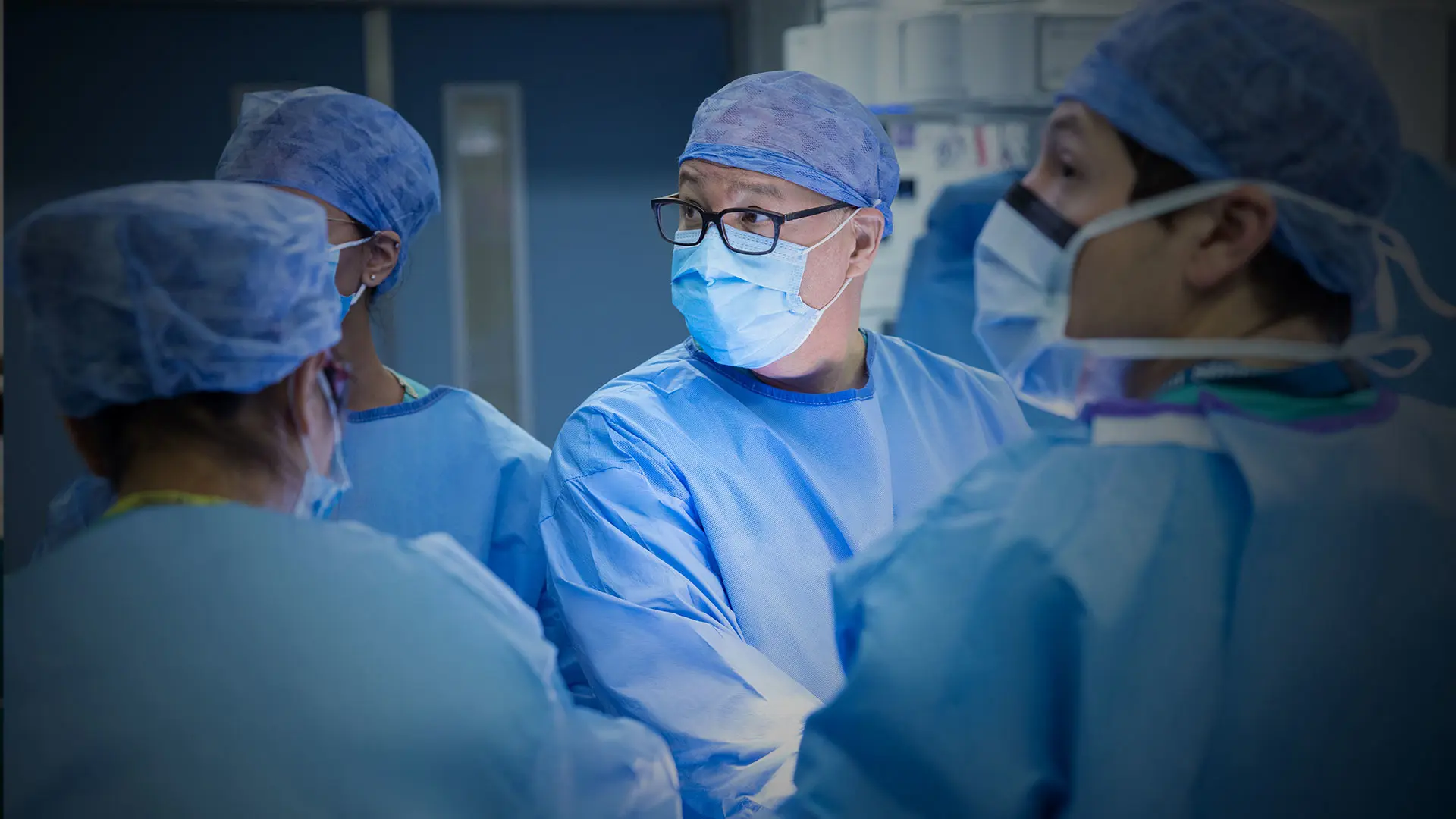When Mount Sinai’s Andrew J. Kaufman, MD, made the leap from open surgery to a robot-assisted minimally invasive approach to treating patients with bronchiectasis and nontuberculous mycobacterial lung disease, he was impressed with the outcomes he was able to achieve.
“With this minimally invasive approach, we are able to remove entire diseased lobes using just three small access ports,” says Dr. Kaufman, Director of the Thoracic Surgery Airway Program at Mount Sinai. “We have also reduced the average postprocedure patient hospitalization from five days to two, the postoperative pain reported by patients, and the amount of blood loss. That has led to significant improvements in their overall recovery and return to normal activities.”
Robotic-assisted surgery is one way in which Mount Sinai’s bronchiectasis program continues to distinguish itself in the diagnosis and treatment of the disease. Launched in 2019, it takes a comprehensive, multidisciplinary approach to care that goes beyond complex disease management. Patients have access to a dedicated social worker who provides financial advice and assistance in securing medicine. They can consult with a nutritionist to develop meal plans that support weight gain and improved immune function. They also have access to a nurse practitioner who helps coordinate their appointments and delivers airway clearance training through in-person and online sessions.
“Our patient-centric approach to care is very unique,” says Christian D. Becker, MD, PhD, Director of the bronchiectasis program, and Professor of Medicine (Pulmonary, Critical Care and Sleep Medicine) at the Icahn School of Medicine at Mount Sinai. “It enables us to provide any avenue of treatment and management they need without a referral, and to coordinate their consultations so they are all on the same day. We also have the benefit of close collaborations with National Jewish Health in Denver so we can draw on their expertise in treating our patients.”
This comprehensive approach to bronchiectasis care has helped increase awareness of the diagnosis across the Mount Sinai Health System. It has also enabled the multidisciplinary team to achieve earlier interventions among patients who present with mycobacterial infection, in some cases preventing the progression of bronchiectasis through a regimen of antibiotics. “I think that is just as important as the bronchiectasis aspect of the program,” says Dr. Kaufman. “It demonstrates how we are taking care of patients before there is a problem.”
Patients who do develop bronchiectasis have more options for enhanced care through the program’s ongoing evolution. After joining the program in 2022, Dr. Becker led the development of a patient registry to provide physicians with a convenient, robust source of information about disease types, trends, and outcomes. The data will help guide physician decisions on approaches to patient treatment. Moreover, they will facilitate research collaborations with National Jewish Health and Jefferson Health, as well as patient participation in the program’s growing portfolio of clinical trials.
“The clinical trials give us the ability to offer patients access to new therapeutic agents that otherwise would not be available to them, and the registry improves our ability to identify the patients who could benefit from these agents,” says Dr. Becker. “That is one more way in which we are working to achieve the best possible outcomes for them.”
In addition to increasing participation in clinical trials, Dr. Becker is exploring the potential of engaging Mount Sinai’s translational research capabilities in immunological studies that could lead to new treatment options. It is a forward-looking idea that also takes his career full circle. He studied cystic fibrosis while earning his PhD in molecular genetics and has conducted extensive research in human pulmonary immunology, specifically the mechanisms involved in fighting lung infections.
“We have the opportunity to do advanced studies that could lead to breakthroughs in the field,” he says. “To be able to do that and reactivate the work I have done in immunology would be meaningful for me.”
